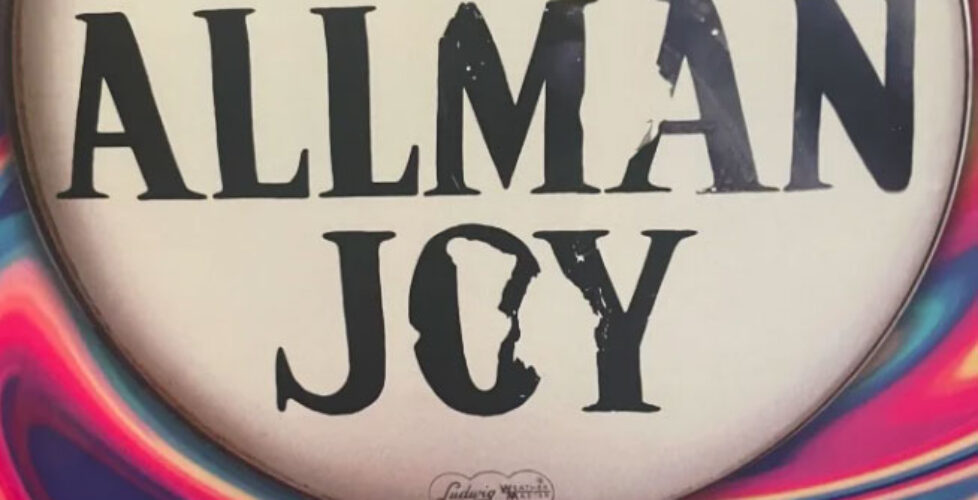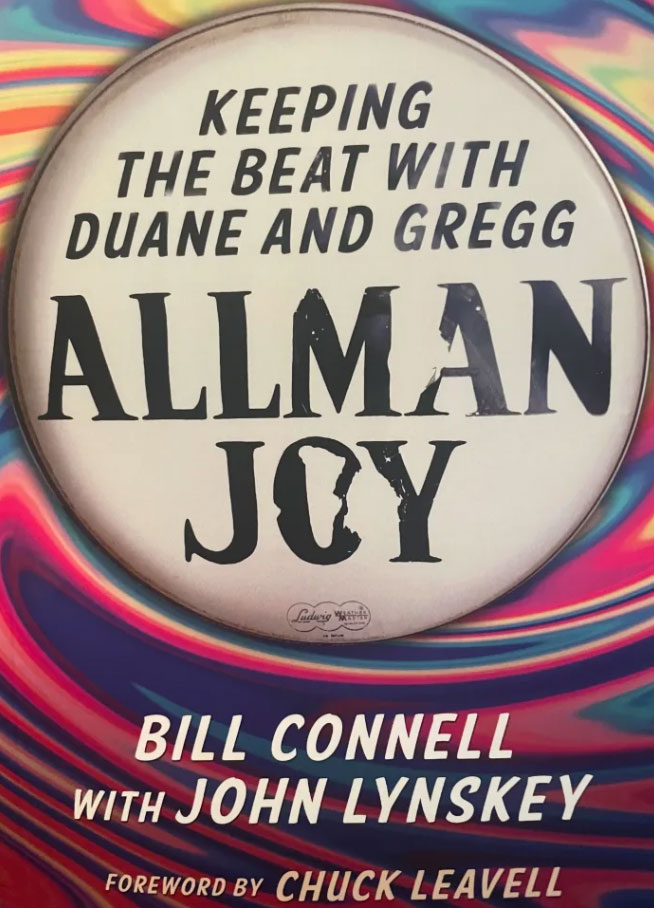Terrific page-turner on The Allman Joys detailed by ABB historian

Allman Brothers Band historian and archivist John Lynskey explains the joy of reading the official book on Duane and Gregg Allman’s band, The Allman Joys.
This week a new biography, Living the Beatles Legend: The Untold Story of Mal Evans was announced. Evans, a largely unknown but important figure in the band’s inner circle was their roadie and personal assistant in their earliest days. Many of the stories he shares have not been told before and the importance of the book for fans lies in the fact that there’s almost no one left from that era to tell them; at least not first hand. As rockers from that era continue to pass, the need to document their complete histories becomes even more urgent.
That’s what makes the release of Allman Joy particularly important. It’s an Allman Brother’s story told by one their first drummers, when they were known as The Allman Joys and their sound was more pop-driven and in line with current AM radio-friendly sensibilities. Like so many within the Allman realm, Bill Connell has passed. But like Mal Evans his pursuit to write down the many experiences he shared with Duane and Gregg Allman began many years ago, and the development of this terrific page-turner is a story unto itself and a remarkable labor of love.
Things accelerated about two years ago when former member of the Allman Brothers Band (and musical director and keyboardist for The Rolling Stones), Chuck Leavell reached out to John Lynskey to help the project come to completion. Lynskey is the resident historian at The Allman Brothers Band Museum at the Big House in Macon, Georgia and along with many contributions to Allman reissues, co-wrote My Cross To Bear, Gregg Allman’s best-selling autobiography. Together they deconstructed what had been written to date and approached the project with fresh eyes. The result is a collection of tales within a complete life story that will introduce the world to private conversations, stories from the road few have heard before, and heart-felt remembrances of a brotherhood that lasted a lifetime.
Goldmine caught up with Lynskey to talk about the approach to completing this project and learn why these stories and this moment are such an important part of the overall legacy of a band that continues to influence the world of music in meaningful and often profound ways.
Goldmine: The Allman’s made one of the biggest comebacks in rock almost 35 years ago and have remained wildly popular since. Why did this project take so long to complete?
John Lynskey: The Allman Joy and Hourglass period was overlooked because the very resurgence that you’re talking about with the Allman Brothers was completely unexpected. If you go back to 1989 they had just put out The Dreams retrospective box set for the 20th anniversary. That tour was supposed to be a one-off. No one expected it to keep going, especially for another 25 years. So the focus really turned to the Allman resurrection. The result was that no one really went back any further in the band’s history. Part of the problem with the Allman Joys is also that Gregg didn’t talk much about it and all of the other members of the band had passed away, except for Bill Connell. Bill had had his moment in the sun with the Allman Joys, and was a great drummer, but he got drafted and ended up out of the music business. He’d been thinking about writing the book for years because he thought there was a real story there. But it took a lot of old musical friends from Tuscaloosa, Alabama to rally behind a guy who’d been important to them and help him get his story out. Patience is a virtue and there was a lot of virtue earned in the making of this book.
GM: How did you become involved?
JL: People know what a musical mecca Macon, Georgia is. The truth is that so many of the people who made it important came from Tuscaloosa; most importantly Chuck Leavell. He was younger than Gregg, Bill and Duane and he would go see the Allman Joys play in Tuscaloosa all the time. They had a huge impact on him and he never forgot his roots or his friends and he stayed in touch with Bill Connell. Three years ago Bill reached out to Chuck and let him know about how he had been working on the memoir for a long time and that he wasn’t really getting anywhere. So Chuck put him in touch with Jeff Craig who was a musical author and who helped write several of Chuck’s books. Jeff started working on it and about two years ago he was killed in a freak accident. The book at that point was about halfway done. Chuck called me and said that Bill needed someone to finish the book and that he felt that I was the guy to do it. I’d never met Bill, although I obviously knew who he was and what the basic history of the band had been. We connected over the phone and we hit it off. It turned out to be a great story, a moment in time.
GM: Bill shares some really incredible tales. Were there any that even you heard for the first time?
JL: Yes, Bill had a great memory and told stories that I’d never heard. I hadn’t heard the story of meeting Jeff Beck and Jimmy Page in Greenwich Village, or more importantly the details of Duane getting married for the first time. It also was the first time I’d heard of Gregg going off on Duane and having the nerve to confront his big brother. I was really fascinating because I’d never heard anyone else talk about it.
GM: One thing that comes across is how dangerous that southern club circuit was in the late 1960’s for cover bands. It’s surprising that it didn’t deter the Allman’s from their musical dreams.
JL: Duane Allman knew at the age of 18 exactly what he wanted to do and nothing was going to stop him, including failure. He failed over and over again but he never quit or let go of that vision. It became very clear through the Allman Joys who Duane Allman was. They were going to make their own music no matter what. Damn the torpedoes and full steam ahead.
GM: What do you think musically stands out most from this moment in Allman history?
JL: They were doing cover songs but with incredible accuracy. When you listen you notice three things. First, that Duane Allman was an exceptional guitar player. Then, that Gregg Allman’s voice was coming into its own. And lastly, that Bill Connell was a helluva a drummer. I think the big “what it” with the Allman Joys is that if Bill had not been drafted the odds of him having been in the Allman Brothers is at least 50/50.
GM: The book quickly closes with Gregg’s passing. Why wasn’t more attention given to that moment?
JL: We were just about finished, developing the ending a bit more then in March of this year I got a call from Mark Harrelson, one of Bill’s old friends, who told l me that Bill had died he night before. It was surreal. We were getting ready to finish everything and we still hadn’t met in person. We’d been talking about doing something at Capricorn Studios in Macon, doing something in Tuscaloosa, and now he was gone. You’re right. It kind of reads a little light at the end because we were trying to finish a story that wasn’t necessarily mine to tell. We decided it was better to work on everything Bill had talked about as opposed to not finishing it, so we did, and it’s been very well-received. It fills in a huge overlooked chapter of the Brother Allman. Everyone else is gone and if Bill hadn’t told these stories those pieces of the jig saw puzzle would have never been put in place.




